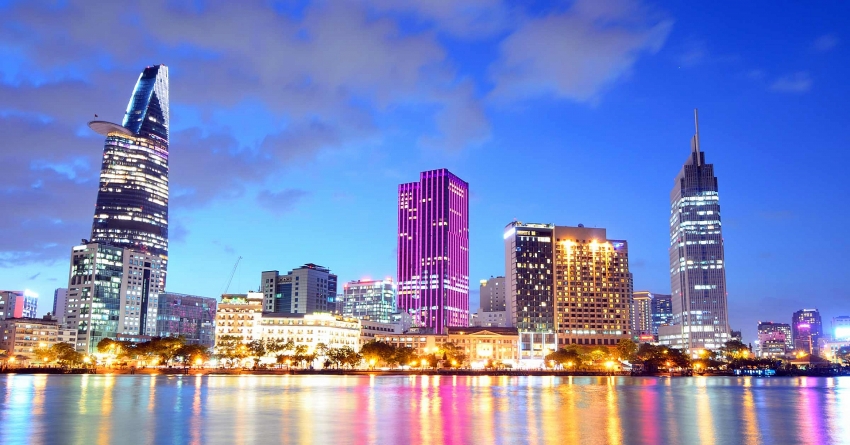How the most prominent political event in Vietnam in 2021 could affect its economy
The National Congress, held every five years, will choose the country’s new leadership and set socio-economic goals for the next 5-10 years. All eyes will be on who the next “four pillars” will be, namely who will fill the top four positions: party general secretary, prime minister, state president, and chair of the National Assembly.
 |
Due to pandemic challenges, Vietnam’s 2016-2020 average GDP growth only reached 6 per cent, missing its target of 6.5-7 per cent set in the 12th National Congress in 2016. In October 2020, Vietnam’s Ministry of Planning and Investment proposed a 6.5-7 per cent growth target for 2021-2025, with a GDP per capita target of $4,700-5,000 by 2025. In the first week of 2021, the government set its 2021 growth target at 6.5 per cent.
Over the medium term, Vietnam strives to become an upper-middle country by 2030 and ultimately a high-income one by 2045. In addition to multiple quantitative targets, it is also worth watching what specific national priorities Vietnam will pursue. One of the key topics is Vietnam’s economic relations, particularly with China and the US, its top two trading partners, HSBC noted.
Back in the 5-year Socio-Economic Development Plan for 2016-2020, infrastructure was set as an economic priority, particularly in areas such as transportation and energy. It explicitly mentioned the construction of three key national projects, the North-South Expressway, the North-South Railway, and Long Thanh International Airport.
In some previous publications, HSBC has flagged a dilemma Vietnam has been facing: limited fiscal space due to its elevated public debt amid an ambitious push for infrastructure development.
Fortunately, Vietnamese authorities have pursued structural reforms in this area. In 2020, the long-anticipated Public-Private Partnership Investment (PPP) Law was passed and has come into effect from January 1, 2021, aiming to solve lingering issues concerning private investors and encourage their participation in mega-projects. Another key focus is centred on the privatisation/equitisation of state-owned enterprises (SOEs).
During 2011-2015, almost 600 SOEs were equitised, meeting 96 per cent of the target. However, the process has stalled significantly since 2016. From 2016 to September 2020, only 37 out of 128 SOEs were equitised, less than 30 per cent of the target. While the pandemic partly played a role, factors such as auditing and land management may have slowed the process. Meanwhile, the Ministry of Finance is working on an SOE restructuring plan for 2021-2025, which could turn into a more detailed roadmap at the upcoming 13th National Congress.
What the stars mean:
★ Poor ★ ★ Promising ★★★ Good ★★★★ Very good ★★★★★ Exceptional
 Tag:
Tag:
Related Contents
Latest News
More News
- EU and Vietnam elevate relations to a comprehensive strategic partnership (January 29, 2026 | 15:22)
- Vietnam to lead trade growth in ASEAN (January 29, 2026 | 15:08)
- Japanese business outlook in Vietnam turns more optimistic (January 28, 2026 | 09:54)
- Foreign leaders extend congratulations to Party General Secretary To Lam (January 25, 2026 | 10:01)
- 14th National Party Congress wraps up with success (January 25, 2026 | 09:49)
- Congratulations from VFF Central Committee's int’l partners to 14th National Party Congress (January 25, 2026 | 09:46)
- 14th Party Central Committee unanimously elects To Lam as General Secretary (January 23, 2026 | 16:22)
- Worldwide congratulations underscore confidence in Vietnam’s 14th Party Congress (January 23, 2026 | 09:02)
- Political parties, organisations, int’l friends send congratulations to 14th National Party Congress (January 22, 2026 | 09:33)
- Press release on second working day of 14th National Party Congress (January 22, 2026 | 09:19)




























 Mobile Version
Mobile Version